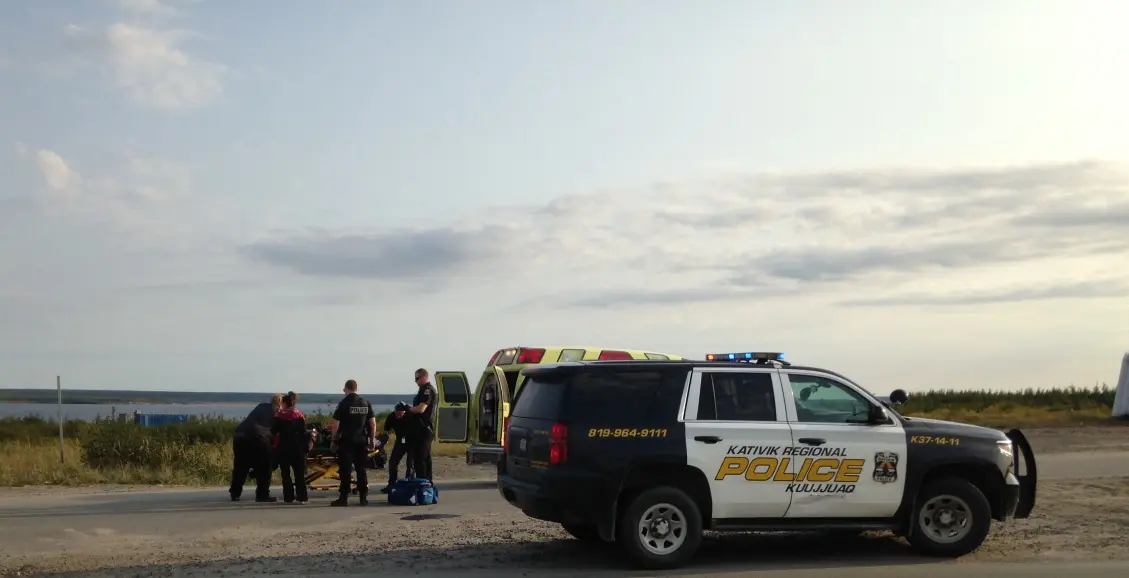Serving and protecting Nunavik communities

The KRPF has an essential role in Nunavik communities of serving and protecting citizens by participating in community activities, preventing and investigating crimes, responding to emergency calls, promoting road safety and testifying in court.
The police officer's first order of business is to serve and protect. KRPF police officers serve their communities by helping and protecting citizens in times of crisis and emergencies. They issue traffic violation tickets to dangerous and careless drivers. They arrest and sometimes detain people to protect citizens and to deter illegal and dangerous behaviour.
When on duty, KRPF police officers answer calls for service. Some calls involve major crimes and many involve minor incidents such as noise complaints or traffic incidents. Police officers are also trained in first aid and CPR to aid injured people.
Community Involvement
The community involvement aspect of a police officer's duties often gets overlooked. Many officers are active in community projects and activities. Their public service roles include speaking at schools and to community officials. They educate citizens on how to avoid dangerous situations and how to handle emergencies. Other forms of community involvement include drug prevention and education and driver safety programs. These duties help create a better rapport between the KRPF and citizens.
Investigate Crimes
Police officers and investigators routinely investigate crimes. When someone calls the police department after a crime is committed, officers in the area respond to the call. They take statements from parties involved in the incident as well as any witnesses to get additional information. Officers also gather any evidence immediately accessible and restrict access to areas where the crime occurred so forensic crime scene officers can collect evidence.
After the Completion of an Investigation
After completion of the investigation, the final police report is submitted to the district crown attorney. The crown attorney then determines if the case is closed or if any charges under the criminal code or another provincial offence will be brought against an offender. If the crown attorney decides to charge an offender, a court appearance date is set.